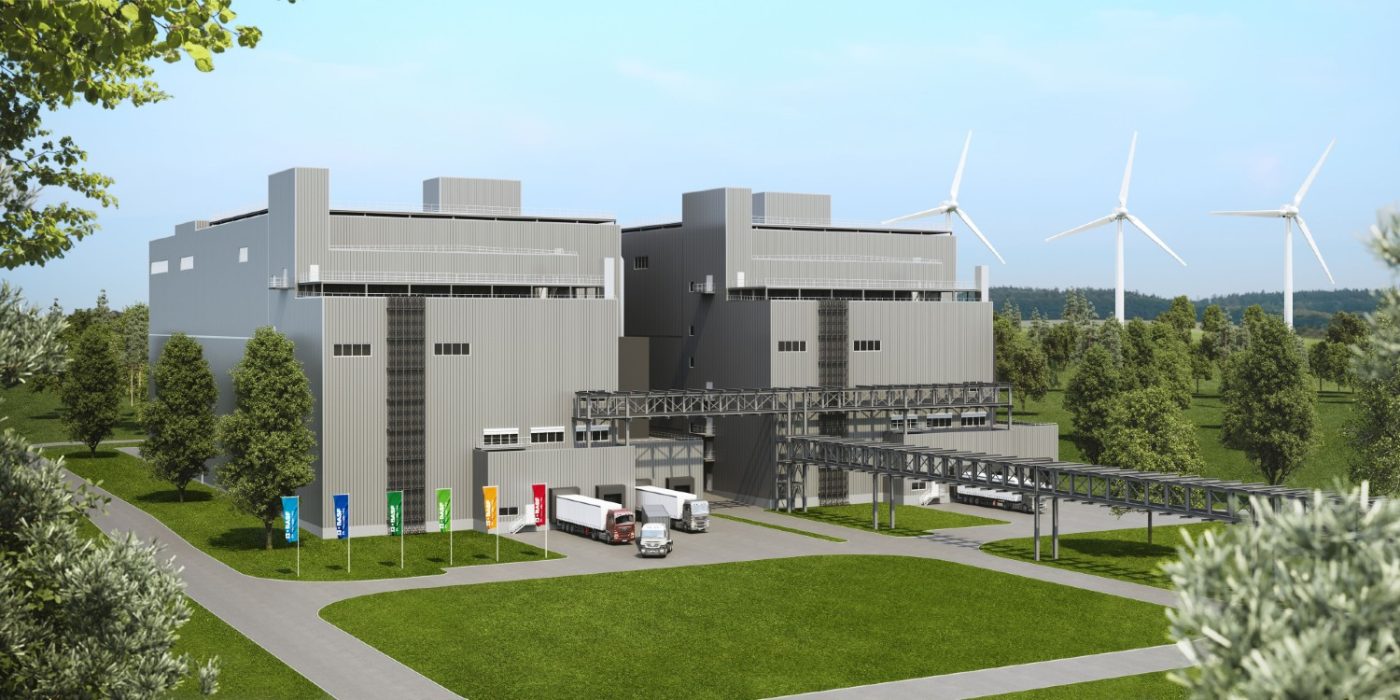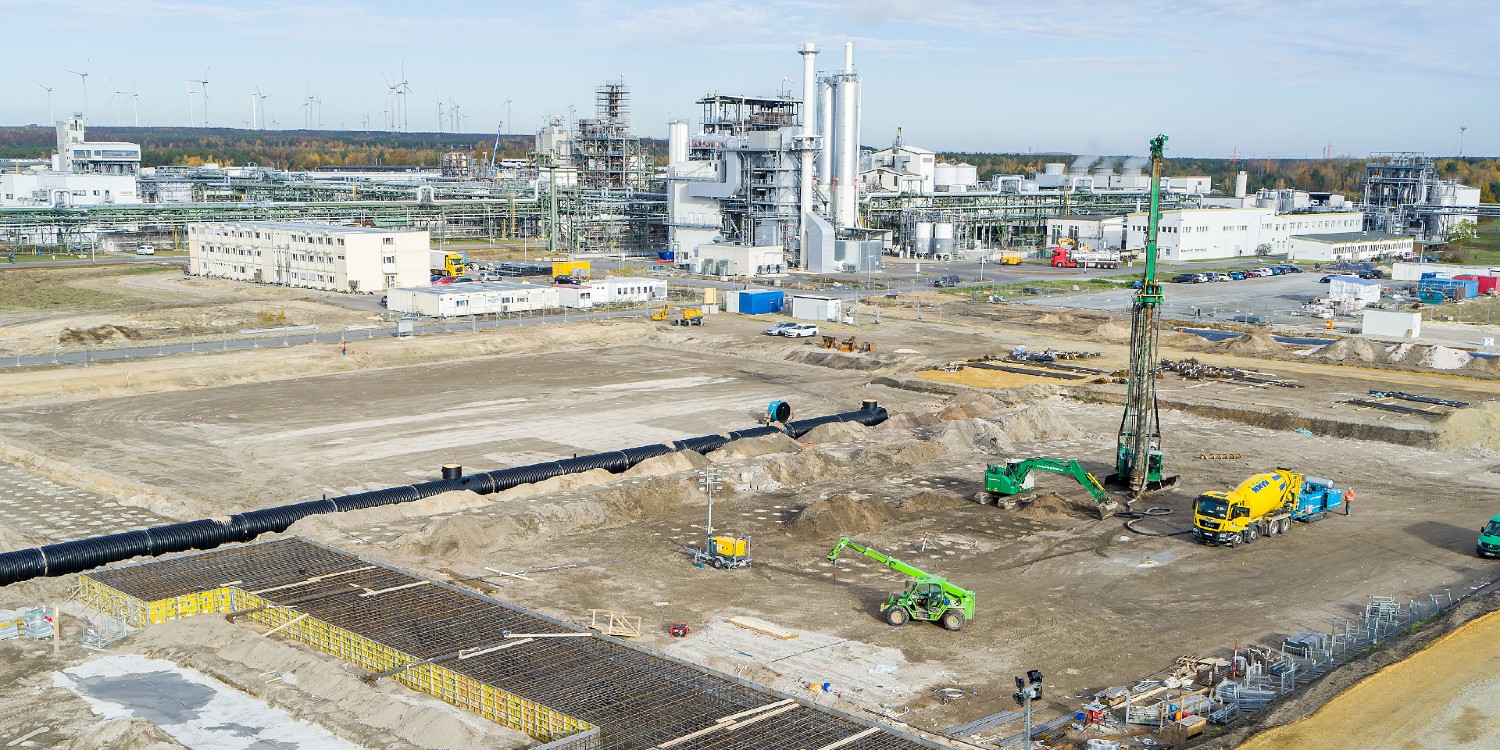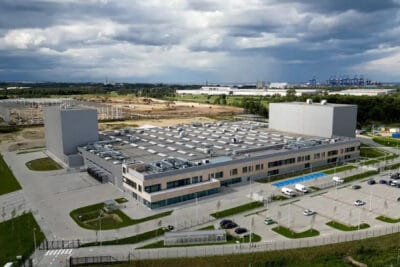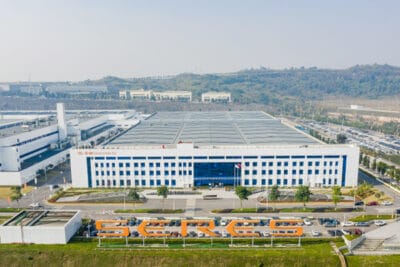BASF breaks ground for cathode plant in Germany
The chemical company BASF has completed the groundbreaking ceremony for the cathode material plant in Schwarzheide, Brandenburg. At the digital event, German Minister of Economics Peter Altmaier described the project as a “big step for Germany and Schwarzheide”.
++ This article has been updated. Kindly continue reading below. ++
While the ceremony was only just announced, work in Schwarzheide has already been underway for several months, and preparatory work has been taking place there since August. Construction has now officially begun and the plant is scheduled to go into operation in 2022. According to BASF, the new plant will produce battery materials for over 400,000 electric vehicles per year. In Schwarzheide, precursors from the previously announced BASF plant in Harjavalta, Finland, are to be processed with “world-leading process technology”.
The symbolic groundbreaking ceremony was performed by Jürgen Fuchs, Managing Director of BASF Schwarzheide GmbH, alone in front of a camera on-site, just as things will be in 2020. Guests such as German Economics Minister Peter Altmaier, the Vice President of the European Commission, Maroš Šefčovič, Brandenburg’s Prime Minister Dietmar Woidke and Peter Schuhmacher, head of BASF’s Catalysts division, were connected in a video conference.
“We support our customers and want to capture the growth opportunity in the fast-growing electric mobility market with our investments in battery materials in Europe,” said Martin Brudermüller, Chairman of the Board of Executive Directors of BASF SE. “Electromobility is one of the key solutions to unite the global desire for individual mobility and the need to significantly reduce local emissions. BASF is driving sustainable electromobility with innovative battery materials and state-of-the art technology.” However, Brudermüller did not actually take part in the event itself, as he was “unable to attend at short notice”.
“We aim to produce the world’s best-quality and best-performing batteries in Germany and Europe. We are therefore backing the expansion of battery manufacturing which uses the latest and most environmentally friendly materials,” said German Minister of Economics Peter Altmaier at the digital event. “Specifically, the Federal Government and the Land are providing approximately €175 million towards BASF’s project. I am delighted that BASF aims to set new standards in Schwarzheide and create forward-looking jobs which will contribute to successful structural change in the region.”
In August 2020, it became clear that BASF will receive 175 million euros for the project from the federal government and the state of Brandenburg, whereby the state is contributing 30 per cent and the Ministry of Economics 70 per cent. The EU Commission had approved the funding in December 2019 as an important project of common European interest (IPCEI) under the state aid rules.
For this reason, the Vice President of the European Commission, Maroš Šefčovič, also attended the event and emphasised the importance of establishing a competitive and sustainable value chain for the production of battery cells in Europe. “The battery value chain is of strategic importance for Europe’s resilience, particularly with respect to clean, sustainable mobility,” said Šefčovič. “This is even more critical as we seek to jumpstart our economies while accelerating the green transition.”
BASF is thinking about further plants
Production in Lusatia is to take place “with a high proportion of renewable energy”. Together with efficient production processes and short transport routes, BASF wants to reduce the carbon footprint of its cathode arteries by 30 per cent compared with the “conventional industry standard”. Combined with a new recycling process, this figure is set to rise to 60 per cent in the future. A point that Altmaier also praised. “In the past, we used to build a product and later asked ourselves what we would do with it after it was used,” said the Economics Minister. “BASF is already thinking about recycling the products at a later date when it sets up production. These are innovations with which we can achieve the goal of climate neutrality”.
According to Catalysts Manager Schuhmacher, BASF is already thinking about further production lines. “Europe needs ten such plants by 2025 to achieve the Green Deal goals,” says Schuhmacher. There is room for further production lines in Finland as well as in Schwarzheide. However, no expansion has been specifically announced. “With the experience gained at both sites, we will be able to react more quickly in the future with regard to the period between the investment decision and commissioning,” says Schuhmacher in response to an inquiry from electrive. “We are already in talks with potential customers. However, we will only communicate concrete decisions when they are ready for decision”.
Update 30 June 2021:
BASF has now provided some details on the recycling pilot plant in Schwarzheide that was announced in December. The Group says that this will enable the development of operating procedures and technology optimisation to achieve higher recovery of lithium, nickel, cobalt and manganese from end-of-life lithium-ion batteries.
“By investing in battery recycling and our leading process technology for the production of cathode materials, we aim to close the loop while reducing the overall carbon footprint of our cathode materials by up to 60 per cent compared to the industry standard,” said Matthias Dohrn, Senior Vice President Precious and Base Metal Services in BASF’s Catalysts division. “This will enable us to meet the needs of our automotive OEM customers and helps ensure a more sustainable future for us all.”
In Schwarzheide, however, BASF does not only want to recycle end-of-life battery cells: The plant will also recycle metals from products made by cell manufacturers and battery material producers that do not meet product specifications. The investment, which BASF does not quantify more precisely, is expected to create about 35 new jobs in production, with commissioning planned for early 2023.
With reporting by Sebastian Schaal, Germany.






0 Comments